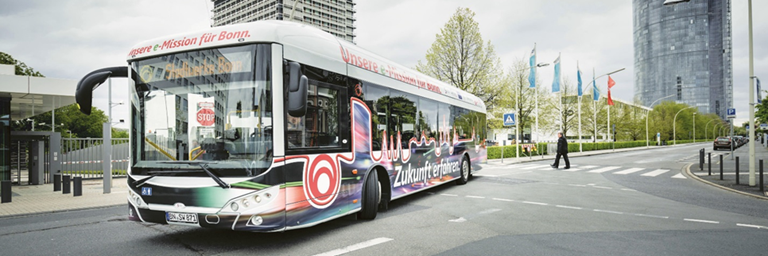The UN Climate Change Conference in Bonn (COP23) scheduled to hold from November 6 to 17, 2017 is designed to increase climate action and more sustainable development at all levels of society. The organisers of COP23 are apparently walking the talk, the conference will be made sustainable to the greatest possible extent. In a special series, the UN Climate Change News team is looking at the different aspects of sustainability – including transport, waste management, catering, energy and offsetting. To kick off the series, the team looked at the issue of making the conference fully climate neutral, including by offsetting carbon emissions. In this second installment of its special series, the team is looking at the issue of sustainable transport and energy.

Ensuring that carbon emissions from energy and transport are kept to a minimum will be an important way of ensuring the upcoming COP23 conference is as sustainable as possible.
Up to 25,000 people are expected to participate in COP23 – including government delegates, representatives of observer organisations, businesses and journalists. The lion’s share of transport emissions will be from long distance travel of participants coming from abroad (see the team’s special article on the overall climate neutrality of the COP, with a focus on offsetting emissions from international travel).
Once the participants are in Bonn, they will have to make their way to the conference site each day, get around on site – and get back to the places they are staying at night. Reducing emissions caused by local transport is therefore a crucial part of the work of the COP23 Sustainability Taskforce.
“The most important aspect is that local public transportation is free of charge for all registered participants from Parties, observer organisations and media,” says Dennis Winkler, Lead of the COP 23 Sustainability Taskforce and responsible for the sustainability of UN climate change conferences at UN Climate Change. “Also, 600 bikes will be provided free of charge for participants to get from one conference zone to another, or even to the city.”
Riding from Bula to Bonn on electric shuttles
The city of Bonn has several electric and hybrid buses in service and special electric COP23 shuttles, running on 100% renewable energy, will connect a brand-new UN Campus train stop with the nearby metro stop and the two conference zones (“Bula” and “Bonn”).
“We think it is important for there to be electric transport at the Bonn Climate Change Conference, as it absolutely meets the key goals of COP23,” says Anja Wenmakers of Bonn’s public transport provider, SWB. “We are committed to supporting climate action goals and believe that public transport in general can make an important contribution to quickly achieving these goals.”
Furthermore, a shuttle service with smaller electric vehicles through the Rheinaue park will be organised by the German Environment Ministry.
Using clean energy efficiently
Transport aside, energy is another important aspect of reducing the footprint of COP23. In an effort to use energy efficiently, the organisers are seeking to keep all indoor areas at an average temperature of 21 degrees Celsius, and not warmer. And participants are requested to turn off room lights and ventilation as well as ICT equipment when not in use.
In addition to maximising energy efficiency, the COP organisers are making sure that the energy that is used in buildings is to the greatest extent possible from renewable sources.
“We have a target of 80 percent renewable energy all over the conference,” says Winkler, adding that he and his team would have to make an assessment of whether this target has been reached at the end of the conference.
The secretariat of UN Climate Change runs on 100% renewable energy, some of it sourced from solar panels on the roof of its headquarters building.
